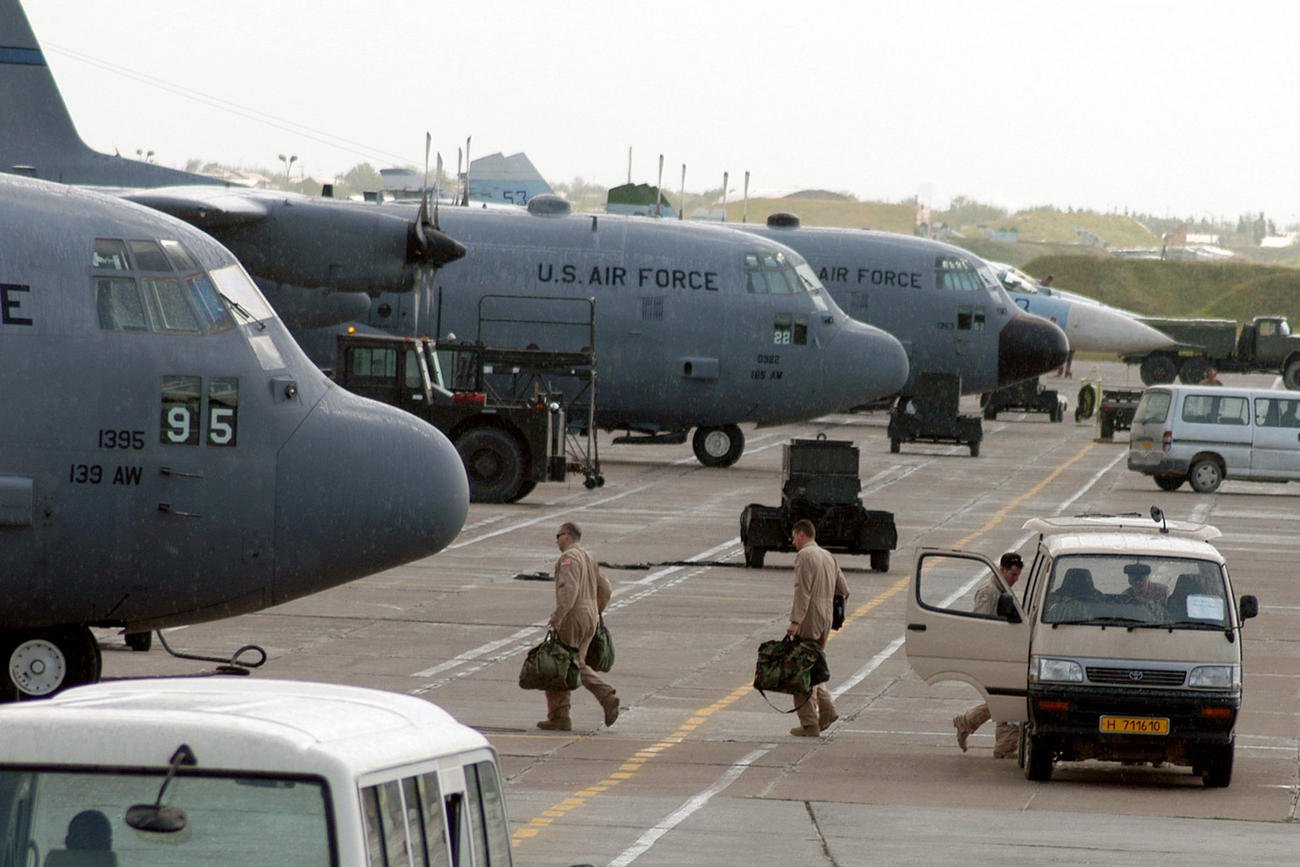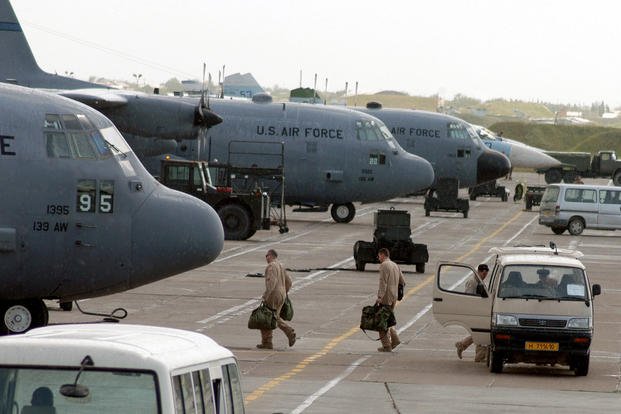

Veterans diagnosed with several types of blood and urinary tract cancers who served in certain overseas locations during the Persian Gulf War and post-9/11 era now have a path to easily file claims with the Department of Veterans Affairs, according to an announcement Wednesday.
The VA has finalized efforts to add acute and chronic leukemias; multiple myeloma and associated diseases; and bladder, ureter and similar cancers to the list of diseases presumed to be related to military service in the Middle East, parts of Africa, and South and Central Asia, including Afghanistan and Uzbekistan.
The designation means that affected veterans will not need to prove that their illnesses are service-related to receive disability compensation and other benefits; they must show only that they served in a designated area and have a diagnosis.
Read Next: Army Doctor Files Guilty Plea in 41 Cases of Sexual Contact, Indecent Behavior with Patients
The announcement includes veterans who served at Karshi-Khanabad Air Base, also known as K2, after Sept. 21, 2001.
“This is particularly important to [President Joe Biden] and veterans who served in K2 — which is a place that the president himself visited, and I visited with him when he was a senator — that we get to the bottom of what happened there, that toxic soup that is there,” VA Secretary Denis McDonough said during a press conference with reporters Wednesday.
Since 2021, the VA has undertaken an internal process to determine whether health conditions may be related to military service, examining its own claims data and considering the scientific research to designate diseases as “presumptive,” or considered to be related to military service.
Previously, the department contracted with the National Academies of Sciences, Engineering and Medicine to study connections based on available scientific research — a lengthy process that often didn’t result in conclusive evidence.
According to the announcement, the presumptions for urinary bladder, ureter and related genitourinary cancers went into effect Jan. 2, while the presumptions for acute and chronic leukemias, multiple myelomas, myelodysplastic syndromes and myelofibrosis will go into effect Jan. 10.
Those eligible include veterans who served in Somalia, Iraq, Kuwait, Saudi Arabia, Bahrain, Qatar, the United Arab Emirates, Oman, the Gulf of Aden, the Gulf of Oman, the Persian Gulf, the Arabian Sea, the Red Sea, and the airspace above these locations on or after Aug. 2, 1990, and post-9/11 veterans who served in Afghanistan, Iraq, Djibouti, Egypt, Jordan, Lebanon, Syria, Yemen or Uzbekistan, and the airspace above these locations after Sept. 11, 2001.
The decision follows an expansion of benefits under the PACT Act of 2022, which provided health care and benefits to millions of post-9/11 veterans and broadened benefits for veterans of other eras who were exposed to environmental pollutants while serving overseas.
Under the PACT Act, 890,000 veterans have signed up for VA care and veterans have filed 4.8 million claims, according to the VA.
Of the 16,000 veterans known to the VA who served at K2, a former Soviet air base with extensive contamination from industrial and military waste, including radiation, 13,002 are enrolled in VA health care and 11,800 have at least one service-connected illness, according to the department.
Veterans appear to support the additions of the new presumptive conditions, based on comments posted to the Federal Register notice announcing the change.
Brian Trickel, a veteran who detailed his battle with bladder cancer in a post on the Bladder Cancer Advocacy Network’s website, called it a win for veterans with genitourinary cancers.
“Hopefully, the VA will back pay all the way back to when a person(‘s) first claim was filed and not when it’s been appealed,” Trickel wrote.
While the department has made strides in designating numerous illnesses as presumed to be related to military service, the VA has not been able to easily approve claims for one of the service-connected conditions listed in the PACT Act, constrictive bronchiolitis, which has been diagnosed in post-9/11 veterans who served in Iraq, Afghanistan and elsewhere.
The department has published a proposed rule to create the framework to approve claims for the illness but will not complete the effort before the end of the Biden administration.
On Wednesday, McDonough said he was proud of the work the VA’s PACT Act Implementation Office has accomplished in the past two years, but added that he “routinely disappoints” himself on PACT Act execution, including the effort to finalize the rule on constrictive bronchiolitis.
“This is a very difficult issue that I wish there were an easier test to confirm that condition. The tests that we have are very invasive and ultimately perhaps detrimental in some ways, to the health and quality of life, and so, we have to continue to work through those claims to ensure that veterans are getting covered,” McDonough said.
Related: VA Takes Steps to Expedite Claims for K2 Veterans with Chronic Illnesses
